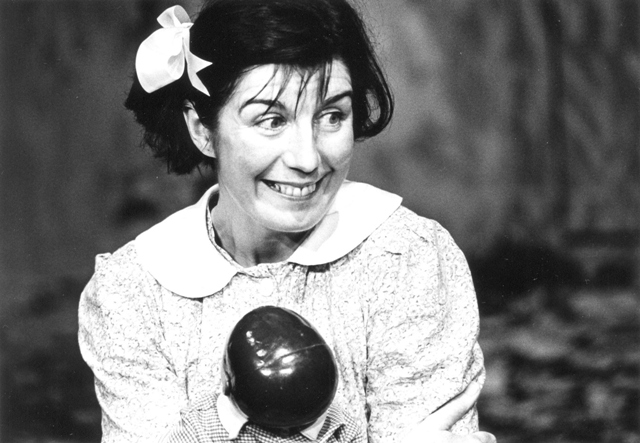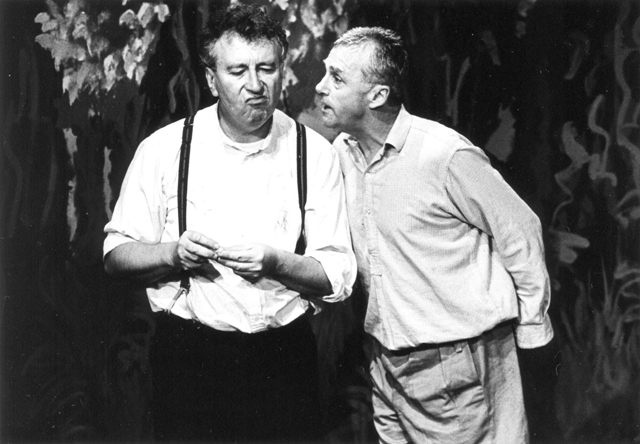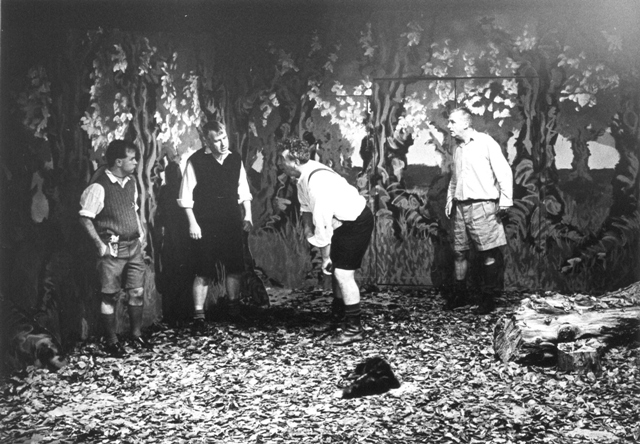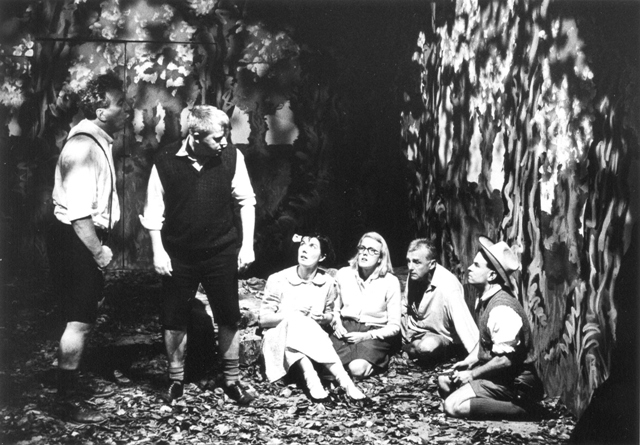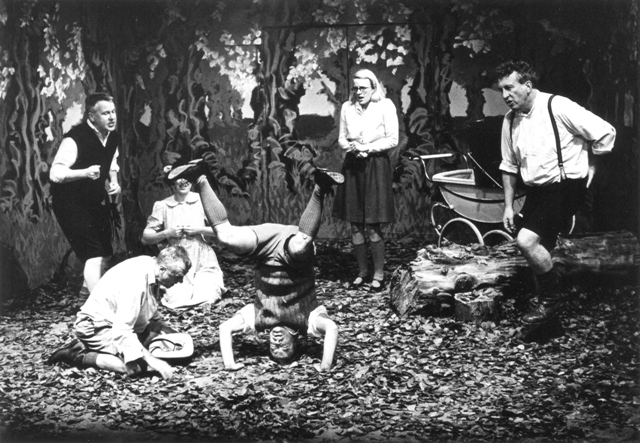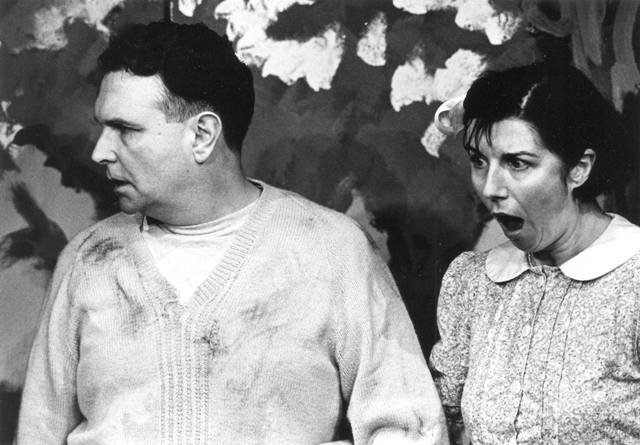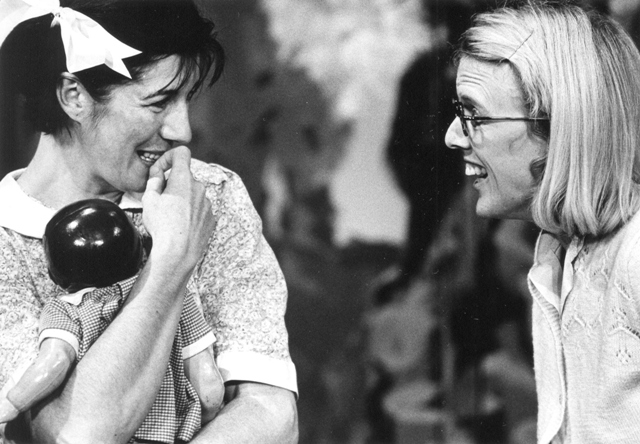The Bench Production
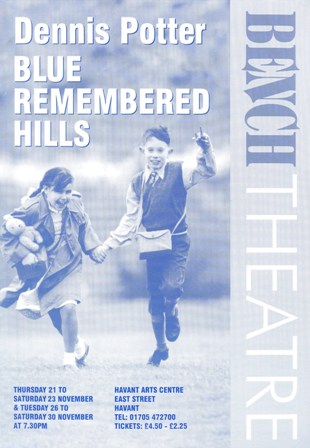
This play was staged at Havant Arts Centre, East Street Havant - Bench Theatre's home since 1977.
Characters
| Willie | Pete Woodward |
| Peter | Peter Corrigan |
| John | Andy Rees |
| Raymond | Simon Walton |
| Angela | Sally Hartley |
| Audrey | Jude Salmon |
| Donald | David Penrose |
Crew
| Director | Neil Pugmire |
| Stage Manager | Gemma Harding |
| Assistant Stage Manager | Paul Southwood |
| Lighting Design | Andrew Caple Ingrid Corrigan |
| Lighting and Sound Operator | Ingrid Corrigan |
| Wardrobe | Sue Walton |
| Props | Gemma Harding Gemma Boyd Sue Walton |
| Publicity | Helena Whalley |
| Leaflet Design | Pete Woodward |
| Programme Design | Neil Pugmire Jon Whalley |
| Set Design | Neil Pugmire Lucy Wallis David Penrose |
| Set Construction Manager | Tim Taylor |
Director's Notes
Conceived as the events of one summer afternoon in 1943, Dennis Potter's affectionate study captures all the joy, horror, anxiety and delight of children at play.
Semi-autobiographical in nature, Blue Remembered Hills is set in a West Country forest similar to the one near which Potter himself grew up. Compared with most of his other plays, it is by far the simplest and most accessible - with none of his normal flashbacks, premonitions or other dramatic devices. It is therefore the easiest of his TV plays to transfer to the stage. But Potter did insist on one thing - that all the parts should be played by adults. He wanted to avoid the "Ahh!" factor of seeing fresh-faced children on stage and focus the audience's attention on the emotions they themselves felt as a child. "The adult body acts as a kind of magnifying instrument which, because it has to loosen up and let go, reminds us more of just how mobile and swift movement is in the childhood world, and yet how long time is," he said in 1978.
The challenge for actors and director alike is to remember the apparently trivial details of growing up which at the time seemed so important - the shame of coming to school with a new haircut or the joy of capturing a tadpole in a jar - and transfer those emotions onto stage. The story is a simple one, but it should spark into life a hundred similar memories of our own youth.
Neil Pugmire
Reviews
The NewsSteve Pratt
Childhood memories
Adults are seldom encouraged to behave childishly, but the actors in this piece by Dennis Potter - adapted from his 1979 TV play - are positively encouraged not to act their age. The year may be 1943 and the setting the West Country, but the themes are timeless and universal. Potter demonstrates that human behaviour is the same no matter what age the participants are. The bullying, taking sides, picking on outsiders and make-believe of childhood games are merely played out on a bigger scale and long trousers as adults.
This Bench Theatre production is given a sure, short (90-minutes, no interval), sharp staging by Neil Pugmire. It's to the credit of the performers - Pete Woodward, Peter Corrigan, Andy Rees, Simon Walton, Sally Hartley, Jude Salmon and David Penrose - that they soon make you forget they're adults and draw us into their childhood of war games, squirrel-hunting and nose-picking. It continues tonight and Saturday, then November 26-30.
The News, 22nd November 1996
